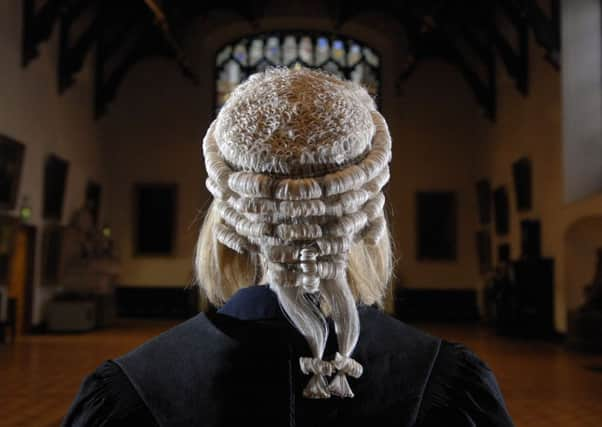Leaders: Time to co-operate on corroboration


It is first worth noting, however, that this landmark reform of Scots Law has happened with neither the support of the legal system nor cross-party backing from MSPs.
On the contrary, this measure comes to the statute book with the backing of only one political party – albeit one that enjoys a majority at Holyrood. And it will be implemented against the expressed wishes of every tier of the Scottish legal world, including solicitors, advocates and judges.
Advertisement
Hide AdAdvertisement
Hide AdIdeally when implementing a large change in the fundamentals of an organisation, one would hope to do so with the support and goodwill of the organisation subject to that change. That is clearly not going to be the case here. And yet, it is necessary for all concerned to do all they can to make this new law work, regardless of their view on whether it is a good idea. The integrity of our criminal justice system hangs on whether this happens.
It may be useful at this point to re-examine the two opposing points of view.
The SNP government has backed the police opinion that the change will allow more cases to be brought to court, and will result in more people who have committed crimes being convicted of those offences. There is obvious appeal in the principle that we should do what we can to improve the chances of bringing criminals to justice, especially with crimes such as rape and domestic violence where the evidential difficulties are well-known.
The legal profession, meanwhile, is concerned that innocent people may be convicted because of the nature of the evidence that will soon be sufficient to secure a conviction.
Both these points of view contain truths. What weight we give to each of them will be an indicator of the kind of society we are.
What, therefore, poses the bigger risk to the kind of Scotland we want to be? Criminals getting away with it, or innocent people being locked up?
The balance will be found in how the new framework operates in practice, and in particular in the quality of supporting evidence that judges may still require of the prosecution.
This supporting evidence may not be strong enough to have qualified as corroboration under the existing set-up, but it will still be required in many cases, regardless of whether a technical need for corroboration is now law. This is the area in which the Scottish criminal justice system will have to find its feet, working towards a new way of reaching just verdicts.
Advertisement
Hide AdAdvertisement
Hide AdIn this process the judiciary – perhaps the most vehement opponents of ditching the need for corroboration – will be the people who will have to make the new system work.
Cruel to be kind?
CRUELTY towards animals is an emotive subject that, quite understandably, provokes great anguish in large sections of the general public. But a case put before Holyrood yesterday raises genuine questions about whether all anti-cruelty legislation is wise.
Gamekeepers told MSPs that Scotland’s ban on tail docking of working dogs is actually – and perhaps counter-intuitively – cruel to these animals.
It is argued that working dogs endure a great deal of pain when working in gorse and bracken if their tails are not docked.
Which poses a moral dilemma: is it better to subject dogs to a simple one-off surgical procedure when they are young, or should we allow dogs to experience pain and discomfort when they are older on a regular basis, as part of their working lives?
Those who would argue that working dogs should not have to endure either of these scenarios, face the difficulty that if these dogs were not working they would be destroyed.
Scotland is the only place in the UK where tail docking is illegal, which leads to the ridiculous practice of Scottish owners taking their dogs over the Border to have the procedure carried out legally in England.
Kindness to animals is a mark of a decent society, just as cruelty to animals is a marker of a deficiency in what it takes to be a good person. But we should not let this principle blind us to the unintended consequences of what may be a poorly conceived piece of legislation.
Rural affairs secretary Richard Lochhead will now consider “revisiting” the ban. This is to be welcomed. What is well-intentioned in principle is not always good law in practice.